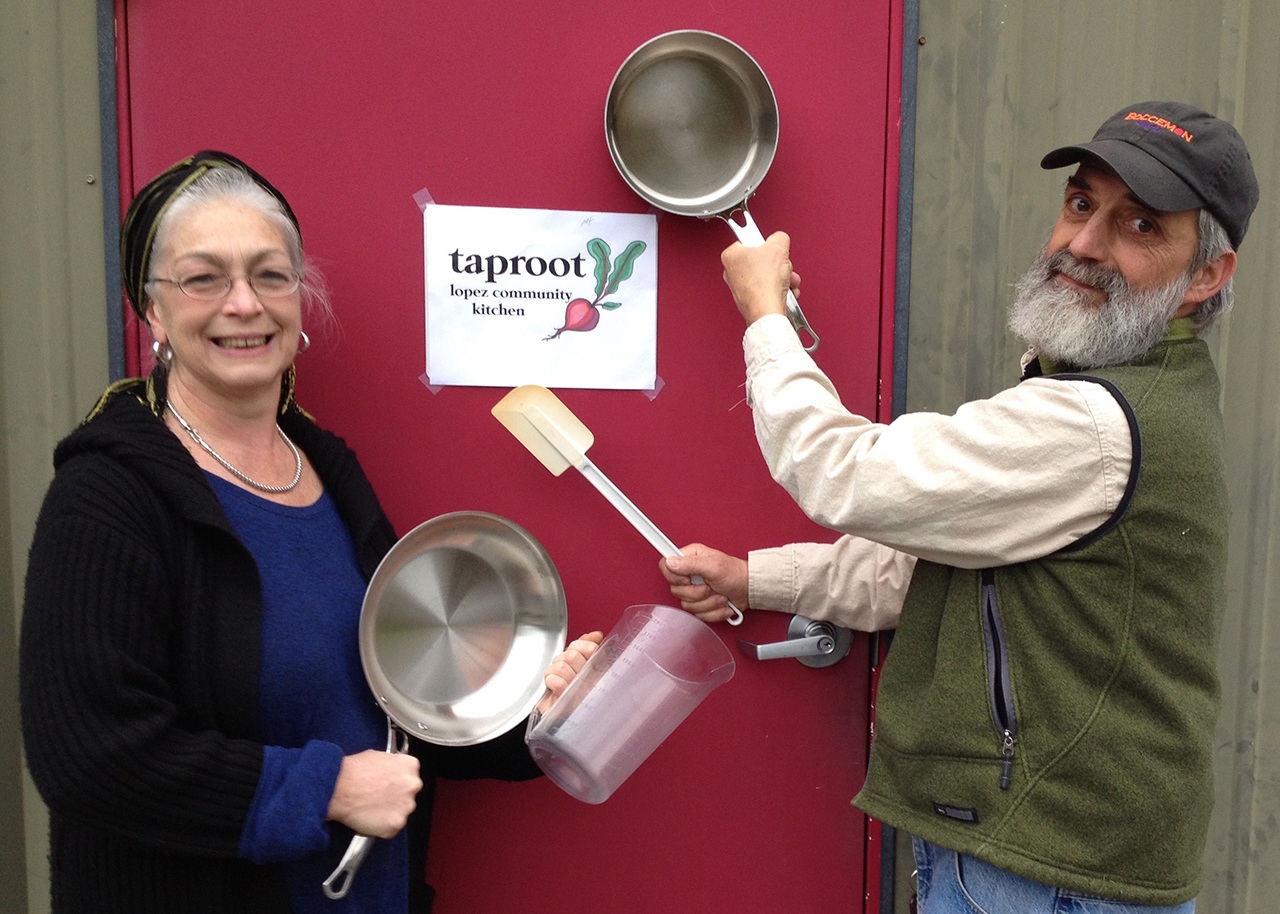By Gretchen Wing
Special to the Weekly
The logo of the Taproot beet announces its vision: Taproot is a kitchen grounded deep in community to produce nutritious food. Community members dismayed at seeing the Taproot sign disappear from the site of the former Blossom Grocery should rest assured: Taproot is growing in a new location on Dill Road, in the island’s center.
Co-founders Randall Waugh and Jean Perry, like many other islanders, have dreamed about this project for years. Waugh compares Taproot’s inception to “a seed waiting years for the right conditions to sprout.” According to Perry, owner of Vortex, the availability of the Village site “seemed a prompt too good to pass up, and the wheels of community kitchen activism started to turn. Again.” From Vancouver, Washington, Lissa Pfandler joined Perry and Waugh to form a Board of Directors, which filed as a non-profit and began laying the groundwork for an ongoing, shared-use commercial kitchen.
According to Taproot’s website, “It is vitally important that local producers have a place to make their products, and it is fitting that the cost of that facility be shared by many hands. This kitchen will benefit all of us, by enabling small businesses to expand, innovate, and flourish. We hope to help people create healthy, locally made products that will eventually become an integral part of the food-web of the San Juan Islands.”
Unfortunately, funding for the Village space became problematic.
“It became daunting to raise funds quickly enough to keep the project moving forward without draining resources on rent, utilities, and insurance,” Perry explains. So the board found a new option.
The Dill Road site, where Waugh creates his well-known Chicaoji sauce, presents some challenges, but even more promises. The immediate hurdle is that the kitchen is set up strictly for commercial production of specific products approved by the Washington State Department of Agriculture, like Chicaoji. “Any other [shelf-ready] product can jump right in and get their licensing from the WSDA,” says Perry, but “prep food” for catering or Farmer’s Market is not yet allowed. But, with community help, the Taproot board intends to make the improvements necessary to achieve this capability.
Participation in Taproot will comprise a combination of membership plus user fees, still to be determined. Currently, the board wants more stakeholders at the ground level. Help in any form is welcome: volunteer time to shape bylaws and operations; funds to install the facility’s equipment; labor to convert the space; social media work to spread the word.
Hal Seifert, owner of the Dill Road facility, is “super excited” about Taproot moving in. “Once it gets up and running more and more people will see the value in utilizing a community kitchen. It’s another step in getting our food closer to the source.”
Waugh is happy to help anyone who needs assistance in obtaining WSDA approval of their product in order to join Taproot. Locals can also process food for personal consumption immediately. Taproot has already dried several hundred pounds of fruit in the commercial dehydrator donated by Jim Birkemeier.
“Imagine putting 60 pounds of fruit in the dryer at once,” said Waugh. “You can’t do that at home.”
For more information or to get involved, visit www.lopeztaproot.org or contact info@lopeztaproot.org.




